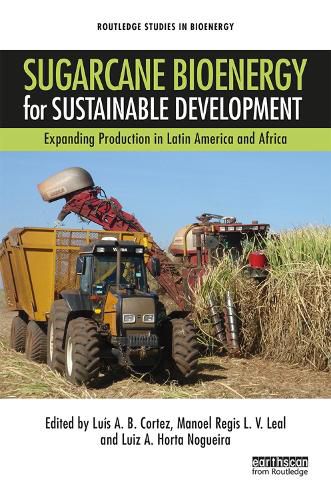Readings Newsletter
Become a Readings Member to make your shopping experience even easier.
Sign in or sign up for free!
You’re not far away from qualifying for FREE standard shipping within Australia
You’ve qualified for FREE standard shipping within Australia
The cart is loading…






In recent years, there has been a rapid expansion of the growing of crops for use in bioenergy production rather than for food. This has been particularly the case for sugarcane in Latin America and Africa. This book examines the further potential in the context of the food versus fuel debate, and as a strategy for sustainable development.
Detailed case studies of two countries, Colombia and Mozambique, are presented. These address the key issues such as the balance between food security and energy security, rural and land development policies, and feasibility and production models for expanding bioenergy. The authors then assess these issues in the context of broader sustainable development strategies, including implications for economics, employment generation, and the environment. The book will be of great interest to researchers and professionals in energy and agricultural development.
$9.00 standard shipping within Australia
FREE standard shipping within Australia for orders over $100.00
Express & International shipping calculated at checkout
In recent years, there has been a rapid expansion of the growing of crops for use in bioenergy production rather than for food. This has been particularly the case for sugarcane in Latin America and Africa. This book examines the further potential in the context of the food versus fuel debate, and as a strategy for sustainable development.
Detailed case studies of two countries, Colombia and Mozambique, are presented. These address the key issues such as the balance between food security and energy security, rural and land development policies, and feasibility and production models for expanding bioenergy. The authors then assess these issues in the context of broader sustainable development strategies, including implications for economics, employment generation, and the environment. The book will be of great interest to researchers and professionals in energy and agricultural development.